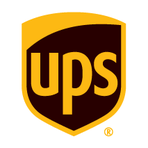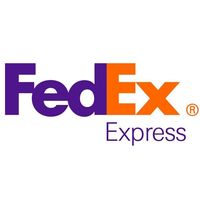FedEx and Amazon: A New Chapter in Delivery Dynamics
May 13, 2025, 10:56 am

Location: United States, Georgia, Atlanta
Employees: 10001+
Founded date: 1907
Total raised: $100K
In the ever-evolving world of e-commerce, partnerships can shift like sand. Amazon has recently signed a multi-year agreement with FedEx to handle some of its large package deliveries. This move comes on the heels of UPS announcing significant cuts to its Amazon deliveries, including a staggering reduction of 20,000 jobs. The landscape of delivery services is changing, and this new alliance could reshape the future of logistics.
FedEx's stock soared by 7% following the announcement. Investors are buzzing. The Memphis-based company is stepping into a role that could redefine its relationship with Amazon. This partnership is not just a business transaction; it’s a strategic play in a fierce market. FedEx will manage residential deliveries of select large packages for Amazon, joining a lineup that includes UPS and the USPS.
This agreement is a sign of shifting tides. In 2019, FedEx severed ties with Amazon, wary of becoming too dependent on the e-commerce giant. Now, they are back together, but the dynamics have changed. FedEx is not replacing UPS; it’s joining a team. Amazon is diversifying its delivery options, seeking cost advantages and reliability.
UPS is feeling the heat. The company has announced plans to cut its Amazon shipment volumes by more than 50% by the second half of 2026. This is a significant pivot for UPS, which has long relied on Amazon as its largest customer. The decision to cut jobs and close facilities reflects a broader strategy to focus on more profitable deliveries. UPS is tightening its belt, aiming for efficiency in a competitive landscape.
The rivalry between FedEx and UPS has been intense. For years, they have battled for market share, often poaching clients from one another. This new agreement with Amazon could tilt the scales. FedEx is positioning itself as a viable alternative to UPS, and Amazon is leveraging this to enhance its delivery capabilities.
The implications of this partnership extend beyond just package deliveries. It signals a potential thaw in relations between FedEx and Amazon. The two companies have had a rocky history, but this agreement suggests a willingness to collaborate. It’s a dance of necessity, where both parties recognize the benefits of working together.
Amazon is not just a retailer; it’s a logistics powerhouse. Its own delivery network has grown exponentially, allowing it to control more of the shipping process. By partnering with FedEx, Amazon is enhancing its capabilities while still relying on its own infrastructure. This hybrid approach could lead to faster deliveries and improved customer satisfaction.
The timing of this agreement is crucial. As e-commerce continues to boom, the demand for efficient delivery services is skyrocketing. Consumers expect quick, reliable shipping. Amazon is keenly aware of this, and it’s making strategic moves to ensure it meets those expectations. FedEx’s involvement could help Amazon navigate the complexities of large package deliveries, especially as it scales its operations.
This partnership also highlights the importance of adaptability in the logistics sector. Companies must be willing to pivot and adjust their strategies in response to market demands. FedEx and Amazon are both demonstrating this agility. They are not just reacting to current trends; they are anticipating future needs.
The landscape of delivery services is not just about speed; it’s about cost-effectiveness and reliability. Amazon’s decision to work with FedEx reflects a desire for “cost favorability.” This is a critical factor in a competitive market where margins can be thin. By diversifying its delivery partners, Amazon is hedging its bets and ensuring it can meet customer demands without compromising on cost.
As this partnership unfolds, it will be interesting to see how it impacts the broader logistics industry. Will other companies follow suit? Will UPS respond with its own strategic moves? The dynamics of delivery services are in flux, and the next few years will be telling.
In conclusion, the new alliance between FedEx and Amazon marks a significant shift in the delivery landscape. It’s a strategic partnership that could redefine how large packages are delivered. As UPS retreats, FedEx steps forward, ready to embrace the challenge. The future of logistics is here, and it’s a game of collaboration and competition. In this arena, adaptability is key, and both companies are poised to navigate the complexities ahead. The sands of e-commerce are shifting, and those who can adapt will thrive.
FedEx's stock soared by 7% following the announcement. Investors are buzzing. The Memphis-based company is stepping into a role that could redefine its relationship with Amazon. This partnership is not just a business transaction; it’s a strategic play in a fierce market. FedEx will manage residential deliveries of select large packages for Amazon, joining a lineup that includes UPS and the USPS.
This agreement is a sign of shifting tides. In 2019, FedEx severed ties with Amazon, wary of becoming too dependent on the e-commerce giant. Now, they are back together, but the dynamics have changed. FedEx is not replacing UPS; it’s joining a team. Amazon is diversifying its delivery options, seeking cost advantages and reliability.
UPS is feeling the heat. The company has announced plans to cut its Amazon shipment volumes by more than 50% by the second half of 2026. This is a significant pivot for UPS, which has long relied on Amazon as its largest customer. The decision to cut jobs and close facilities reflects a broader strategy to focus on more profitable deliveries. UPS is tightening its belt, aiming for efficiency in a competitive landscape.
The rivalry between FedEx and UPS has been intense. For years, they have battled for market share, often poaching clients from one another. This new agreement with Amazon could tilt the scales. FedEx is positioning itself as a viable alternative to UPS, and Amazon is leveraging this to enhance its delivery capabilities.
The implications of this partnership extend beyond just package deliveries. It signals a potential thaw in relations between FedEx and Amazon. The two companies have had a rocky history, but this agreement suggests a willingness to collaborate. It’s a dance of necessity, where both parties recognize the benefits of working together.
Amazon is not just a retailer; it’s a logistics powerhouse. Its own delivery network has grown exponentially, allowing it to control more of the shipping process. By partnering with FedEx, Amazon is enhancing its capabilities while still relying on its own infrastructure. This hybrid approach could lead to faster deliveries and improved customer satisfaction.
The timing of this agreement is crucial. As e-commerce continues to boom, the demand for efficient delivery services is skyrocketing. Consumers expect quick, reliable shipping. Amazon is keenly aware of this, and it’s making strategic moves to ensure it meets those expectations. FedEx’s involvement could help Amazon navigate the complexities of large package deliveries, especially as it scales its operations.
This partnership also highlights the importance of adaptability in the logistics sector. Companies must be willing to pivot and adjust their strategies in response to market demands. FedEx and Amazon are both demonstrating this agility. They are not just reacting to current trends; they are anticipating future needs.
The landscape of delivery services is not just about speed; it’s about cost-effectiveness and reliability. Amazon’s decision to work with FedEx reflects a desire for “cost favorability.” This is a critical factor in a competitive market where margins can be thin. By diversifying its delivery partners, Amazon is hedging its bets and ensuring it can meet customer demands without compromising on cost.
As this partnership unfolds, it will be interesting to see how it impacts the broader logistics industry. Will other companies follow suit? Will UPS respond with its own strategic moves? The dynamics of delivery services are in flux, and the next few years will be telling.
In conclusion, the new alliance between FedEx and Amazon marks a significant shift in the delivery landscape. It’s a strategic partnership that could redefine how large packages are delivered. As UPS retreats, FedEx steps forward, ready to embrace the challenge. The future of logistics is here, and it’s a game of collaboration and competition. In this arena, adaptability is key, and both companies are poised to navigate the complexities ahead. The sands of e-commerce are shifting, and those who can adapt will thrive.

